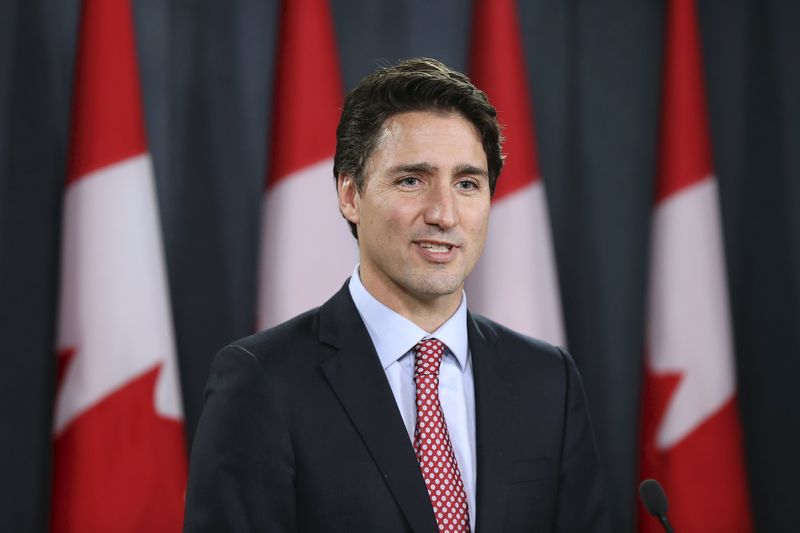By David Ljunggren and Leah Schnurr
OTTAWA, March 19 (Reuters) - U.S. President Donald Trump appears to be "enthusiastic" about coming to an agreement on NAFTA, Canada's Prime Minister Justin Trudeau said on Monday amid signs the pace of talks is accelerating.
Mexican and U.S. officials earlier this month pushed to speed up the process to update the North American Free Trade Agreement, though Trump has repeatedly threatened to terminate the $1.2 trillion trade pact unless Canada and Mexico agree to far-reaching U.S. demands for changes. has also ratcheted up tensions by tying the suspension of new U.S. steel and aluminum tariffs for Canada and Mexico to a successful NAFTA renegotiation. Canada and Mexico say they view the two issues as separate.
"We're renegotiating NAFTA, we've seen from the President he's enthusiastic about getting to a deal," Trudeau said during a panel discussion.
Negotiators are due to meet in the United States for an eighth round of talks in April. All three sides cite the need to avoid interfering with Mexico's presidential elections in July as a reason to move quickly.
In a sign the tempo might indeed be picking up, Canadian Foreign Minister Chrystia Freeland held a meeting with U.S. Trade Representative Robert Lighthizer in Washington last week that lasted four hours rather than the scheduled 60 minutes, said a Canadian source familiar with the talks.
"He just came really ready to work ... There is a growing willingness from the Americans and the Mexicans to try to do as much as possible over the course of the next few weeks," said the source, who declined to be identified given the sensitivity of the situation.
At the end of the seventh round in Mexico City on March 5, Lighthizer floated the idea of reaching an agreement "in principle" in coming weeks. economy minister last week said that if the three nations did not finish up the talks by the end of April, the process would drag on at least until the end of the year. said a spike in protectionism globally played on people's fears over the future and their jobs, but could be alleviated by creating trade pacts that guaranteed better labor standards and quality of life.
"There's a worry as we face a time of transition," Trudeau said. "There are some places where a narrative of 'Let's close and protect ourselves' can be a very compelling political narrative."
